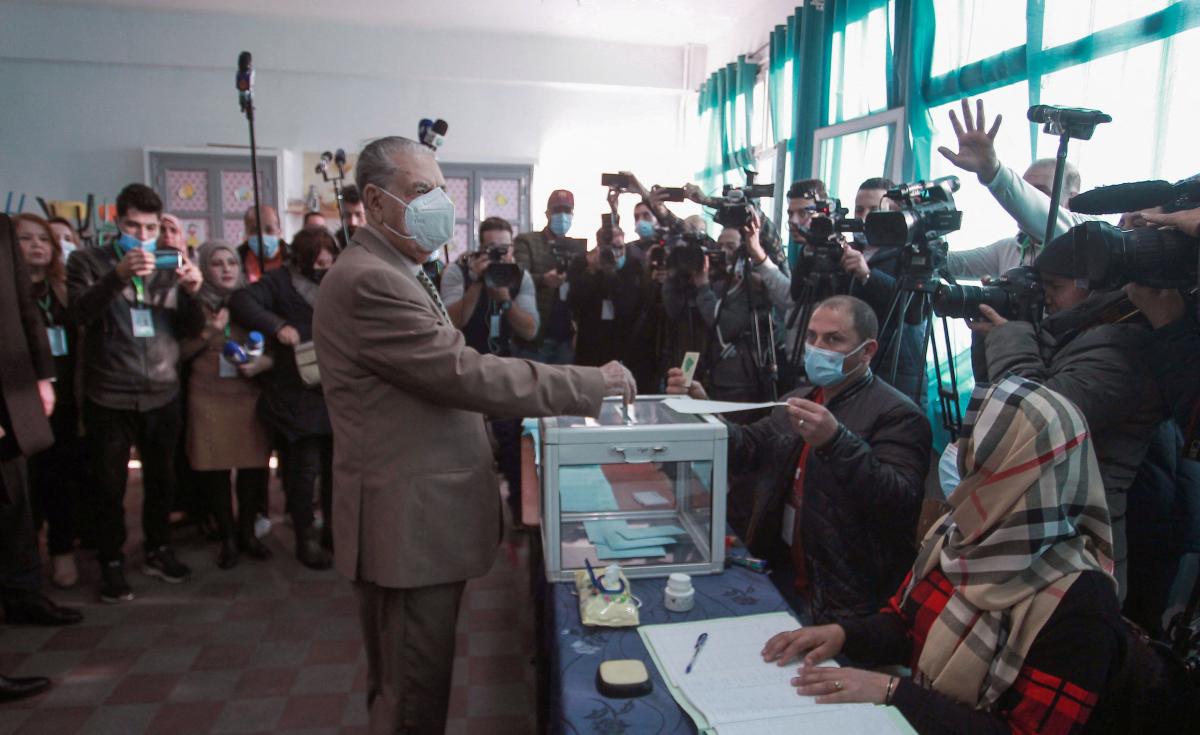Israel, Turkey should restore ambassadorial links: Foreign policy expert
ANKARA: Israel and Turkey should restore ambassadorial links as part of efforts to reduce tensions between the two countries, a leading regional foreign policy expert has told Arab News.
Turkish President Recep Tayyip Erdogan recently hinted that an impending detente with Israel could be next on his rapprochement agenda with countries in the region, including the UAE, Saudi Arabia, and Egypt.
Such a move would reflect a general pattern currently being followed in the Middle East with nations trying to de-escalate tensions and diversify relations.
Dr. Nimrod Goren, president and founder of Mitvim, the Israeli Institute for Regional Foreign Policies, said the restoration of ambassadorial-level ties was now a feasible foreign policy goal for Israel and Turkey.
“The leaders of both countries should not let this opportunity go by unfulfilled and should seek to translate the positive vibe in relations into tangible actions,” he added.
Earlier this month, an Israeli couple, both bus drivers, were detained for a week in Turkey on political and military espionage charges after being arrested for photographing Erdogan’s residence in Istanbul.
Their release and return to Israel and Israeli Prime Minister Naftali Bennett’s public thanks to Erdogan for his personal involvement in resolving the incident were seen as the extension of an olive branch to prevent an escalation of the crisis.
Goren said: “The positive manner in which the incident of the Israeli couple’s detention in Istanbul ended creates a window of opportunity beyond the window that already opened up when the new Israeli government took office and after the recent call between Erdogan and (new Israeli President Isaac) Herzog.
“The efforts to resolve the incident exemplified that both countries can work together to resolve tensions. It increased mutual trust, strengthened existing channels, and led to initial and much-needed direct communication between Erdogan and Bennett.”
In a recent interview with Israeli daily newspaper Haaretz, Israel’s Foreign Ministry Director General Alon Ushpiz, said: “There is potential for a relative improvement in Israel Turkey ties, more than there was two weeks ago, and I think we need to examine it exhaustively.”
Dr. Selin Nasi, London representative of the Ankara Policy Center and a respected researcher on Turkish Israeli relations, told Arab News: “Turkey and Israel, as two of the three non-Arab countries in the region, have a lot to gain from cooperation in various areas, be it trade relations, intelligence sharing, energy cooperation, or defense.
“Indeed, the two countries have succeeded in compartmentalizing bilateral relations and bilateral trade has continued to grow in the last decade despite political disputes.”
The foreign trade volume between Turkey and Israel was $6.2 billion last year.
The looming threat of Iran becoming armed with nuclear weapons had also incentivized the need for security cooperation, Nasi said.
On Nov. 18, Erdogan had a rare phone call with his Israeli counterpart Herzog and emphasized that continued dialogue between the two nations would be “mutually beneficial.”
Nasi added: “From Ankara’s perspective, anti-Israeli rhetoric might have served its purpose in the domestic political sphere but is no longer deemed useful in mobilizing the constituency.”
Instead, she pointed out that a positive narrative based on “Turkey gaining back its soft power through a number of reconciliatory steps taken to mend broken ties with countries in the region” may prove more useful in the upcoming elections.
She noted that improved relations between Turkey and Israel would pave the way for Ankara to get involved, either directly or indirectly, in the US-backed strategic partnership network that had been increasingly consolidated in the Eastern Mediterranean over the last decade.
“Ankara wants to gain back some of the ground lost to her regional competitors — Greece and Egypt — and therefore aims to repudiate multilateral treaties and redraw maritime boundaries according to her strategic interests,” Nasi said.
Israel, she added, had always been a significant facilitator for friendly ties between Ankara and Washington.
“Maintaining cordial relations with Israel also enables Turkey to play a more active and constructive role in the Palestinian issue, raising living standards for the Palestinians.
“Because of her unique geopolitical position bordering Syria and Iran, along with her being a NATO member, Turkey will remain as an important actor and an ally for Israel. This explains why Israel has left the door open for dialogue with Ankara, and welcomed reconciliatory steps in this regard, despite having reservations,” Nasi said.
Meanwhile, Israel has urged Turkey to close all offices and ban the activities of Hamas in the country after a Nov. 21 terror attack in Jerusalem carried out by a Hamas member affiliated with Turkey.
Nasi pointed out that any progress on the normalization of Turkish Israeli relations would depend on Ankara’s sincerity and consistency in seeking reconciliation with Israel.
“There is potential for cooperation, but building mutual trust is essential in moving forward. And in terms of building resilient bilateral ties, the two countries need to develop cooperation on the basis of shared interests in a pragmatic manner, preventing the Palestinian issue solely dominating the agenda,” she added.
Goren said: “Senior Israeli ministers still expect Turkey to prove its goodwill and positive intentions, especially by limiting Hamas’ activities in Turkey. But a Turkish decision to send an ambassador to Israel, will most likely be welcomed, and will be reciprocated with a similar Israeli move.”
He noted that such an upgrade of ties would enable both countries to launch a strategic dialogue on regional affairs, improve bilateral economic and civilian cooperation, promote Turkish involvement in the Palestinian issue, and increase Israeli engagement with the Muslim world.
“If done within a context of a Turkish rapprochement with Egypt and the UAE, the potential will even be bigger. It will soften tensions in the region, broaden the space for dialogue and cooperation, and lessen Israeli concerns that advancing ties with Turkey might jeopardize other regional alliances,” he added.

Erdogan: Turkey will work to enhance relations with Saudi ArabiaTwo Israeli doctors infected with omicron, hospital says



